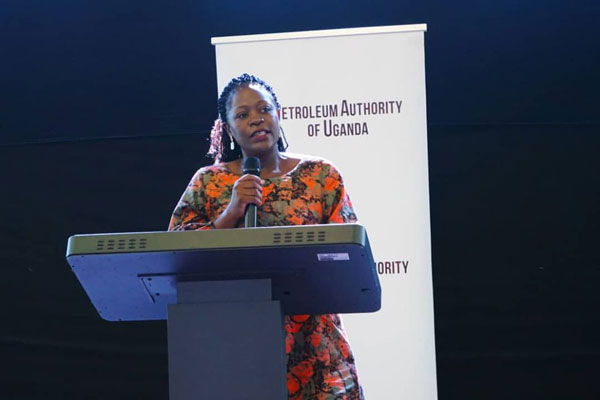
Kampala, Uganda | THE INDEPENDENT | Expatriates could take only three days to secure clearance from the Petroleum Authority to allow them to be employed in the oil and gas sector. The Petroleum Authority in Uganda (PAU) has launched an Electronic Work Permit Recommendation System (EWPRS) to ease the process.
The internet-based system which was launched on Wednesday in Kampala will take the applicant about fifteen minutes to fill the form and submit it to PAU for consideration.
Linda Nalubanga, a Senior National Content Officer in charge of Manpower at PAU said the Electronic Work Permit Recommendation System will be linked to the Uganda Electronic Visa and Permit Application System operated by the Ministry of Internal Affairs.
Currently, a desk officer at the citizen’s immigration department works with the PAU to clear foreigners for employment with oil and gas operators like TotalEnergies, CNOOC, UNOC, their main contractors, and subcontractors.
As part of the efforts to ensure that the oil and gas jobs are not dominated by foreigners, the Petroleum Authority is required to advise the Ministry of Internal Affairs when a foreign worker should be granted a work permit.
Nalubanga told URN that PAU has ensured that its nationalization plan is followed so that the oil companies or the subcontractors don’t hype the job descriptions and expertise to exclude deserving Ugandans.
It is expected that this system will be fully integrated into that manned by the Ministry of Internal Affairs by March 2022.
As of now, Nalubanga explained that the manual system of applying for permits will go on until March when an application will be permitted to submit hard copies of the application.
The new system comes at a time when more expatriates are expected in the country. Construction of the central processing facilities at Tilenga and the King Fisher projects is expected early next year. Some experts will also be expected when construction of the East African Crude Oil Pipeline and the Refinery take off.
The Petroleum Authority, which is the regulator of the upstream and downstream operation said it is not blind to the fact that the country will need some expatriates until Ugandans acquire the needed skills.
Peninah Aheebwa, the Director of Economic, and National Content Monitoring at the Petroleum Authority of Uganda explained that the system will provide an interface between the authority and the industry employers.
“So far, the interface between us is going to be eased by this system. We expect the players to submit all their applications for recommendations for work permits online. And PAU we will review online and provide feedback online” she explained.
For Ugandans, Ahebwa thinks it will be a good monitoring tool to ensure compliance with the rules and regulations around national content.
Ahebwa revealed that about 1500 expatriates have been cleared by the Petroleum Authority.
“Some of them could have walked off but cumulatively, that is the number we have worked on,” said Ahebwa.
Statistics indicate that there are 12946 workers in the oil and gas sector 94% of which are Ugandans. The majority of the employees are reportedly employed by contractors and subcontractors in the industry.
At the launch of the system, the Chairperson of the Board of Directors at PAU, Dr. Jane Nambakire Mulemwa revealed that she had received complaints from TotalEnergies about the slow process of clearing foreigners to the sector.
She expressed hope that this system would shorten the process so that deserving expatriates are allowed to take on roles where no Ugandan is so far qualified.
“The problem was that people were not attaching documents with all the required information. As the regulators, we could not go further unless you attached the relevant documents. So that is why an electronic work recommendation system is important,” Mulemwa explained.
It emerged at the launch that law firms in Kampala city are already cashing in from the oil gas industry. Many services are recruiting workers as well as processing work permits. Some openly expressed their dissatisfaction that the system that was unveiled did not particularly recognize their roles as third parties in processing the permits.
Boss John Bruce, an Advocate with Oitas Advocates told URN that he was happy the system if implemented as envisaged, as it would shorten the turnaround period for one to be recommended for a work permit.
He noted that one of the challenges has been with moving around papers between the Petroleum Authority and the immigration department.
“My experience before has been a very tedious one because we are delivering applications physically. You take a physical copy and you attach an email copy. That would take a long time. The turnaround time was not good,” he said.
He explained that the delay in turnaround time means delays by the third parties in processing the permits and delays on their clients.
***
URN
 The Independent Uganda: You get the Truth we Pay the Price
The Independent Uganda: You get the Truth we Pay the Price



